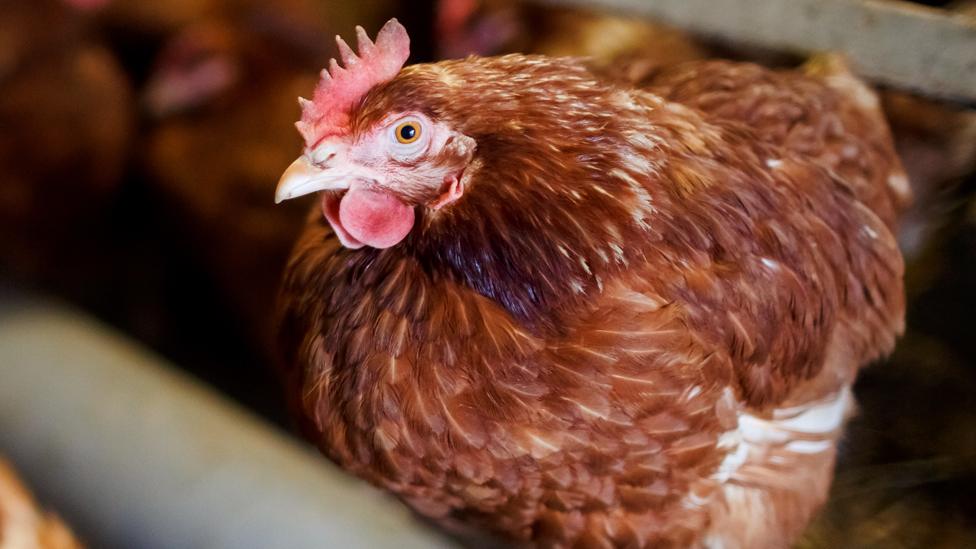Defra Weybridge animal disease lab fighting bird flu needs rebuild - report
- Published
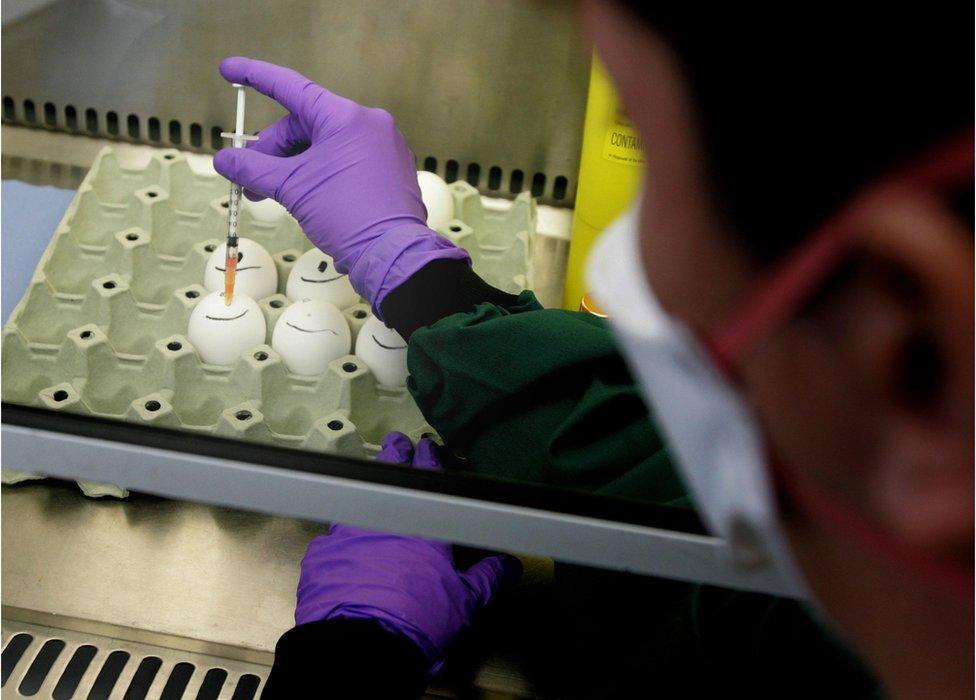
The fight against animal diseases like bird flu could be undermined by the poor state of the UK's main laboratory, warn public spending watchdogs.
Some facilities at the government veterinary base in Weybridge, Surrey, have deteriorated so badly they "are no longer fit for purpose".
The National Audit Office says delays to its rebuild could limit the UK's response to another disease outbreak.
The government said it was taking steps to secure the facility's future.
The Weybridge site, operated by the Animal and Plant Health Agency (APHA), is the UK's main animal health laboratory, and it is there where internationally important research into major animal diseases such as BSE, Foot and Mouth disease and bird flu is led.
'Substantial uncertainty'
Wednesday's NAO report, external looks at the government's plans to redevelop the site, with the construction of a new science hub due to start in 2027, and whether these plans will offer value for money.
The Department for Environment, Food and Rural Affairs originally estimated the rebuild would cost £1.2bn but this has now risen to £2.8bn, a cost that has not yet been approved by HM Treasury.
And the NAO says there still "remains substantial uncertainty around costs".
Meanwhile, an estimated £197m of investment between 2020 and 2025 is still needed to maintain the site.
The report says: "Weybridge is in poor condition, with ageing buildings that need major repair and replacement, and a lack of capacity to carry out science work.
"Defra has allowed its Weybridge site to deteriorate to a state where some of the facilities are no longer fit for purpose.
"The level of under-investment and poor strategic management of the site has greatly increased the risk and complexity of the redevelopment programme.
"Any delays or difficulty completing the programme may expose APHA's operations to greater risk, potentially limiting its ability to respond effectively to a major disease outbreak."
'Reputation for excellence'
Gareth Davies, the head of the NAO, added that Defra had "recently put in place many of the right measures to manage the redevelopment successfully, but it will need to navigate many risks to deliver a site that can protect the UK against animal disease outbreaks and demonstrate value for taxpayers".
Back in 2019 Defra said that the decline of the lab could lead to a total loss of capability within the next decade, leaving the UK vulnerable to future animal disease outbreaks.
In response to today's report, Defra said the estimated cost of the rebuild would continue to be "refined" and that the NAO review underlined the need for investment in the site.
Biosecurity Minister Lord Richard Benyon said: "We are proud of Weybridge's long-standing reputation for excellence in science and evidence that safeguards UK biosecurity, as demonstrated by the fact it is the international reference laboratory for a wide range of important pests and diseases.
"It is right that we plan to make significant investments into the site, which is why we have secured £1.4bn of funding so that we can continue to attract and retain the best scientists to ensure the UK's protection from this kind of threat for decades to come through world leading facilities."
The APHA lab is currently dealing with the outbreak of highly pathogenic avian influenza H5N1, which has seen more than 100 cases across the UK.
Related topics
- Published14 June 2022
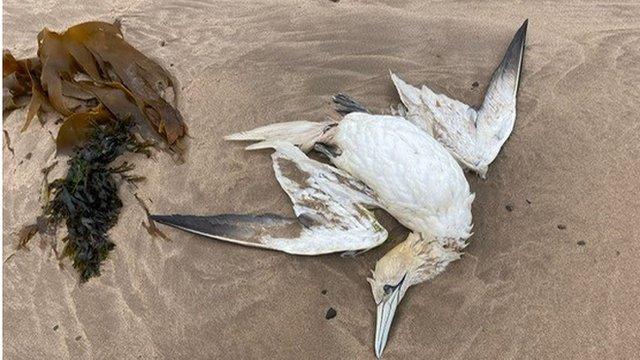
- Published8 June 2022
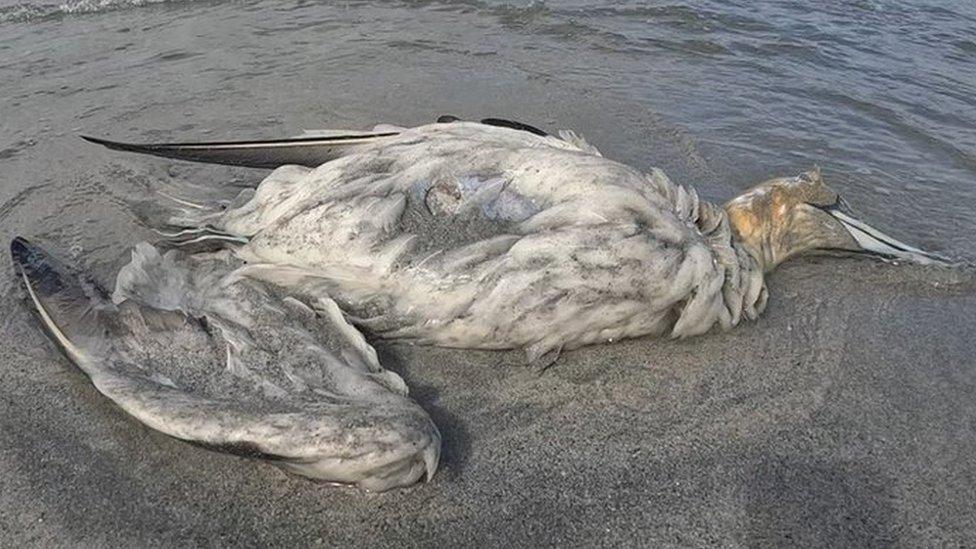
- Published7 June 2022
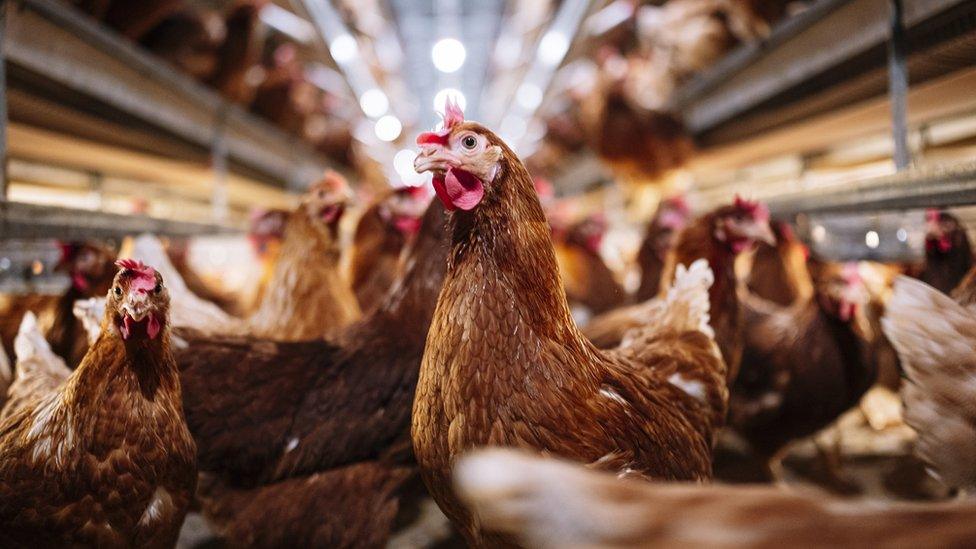
- Published9 December 2021
